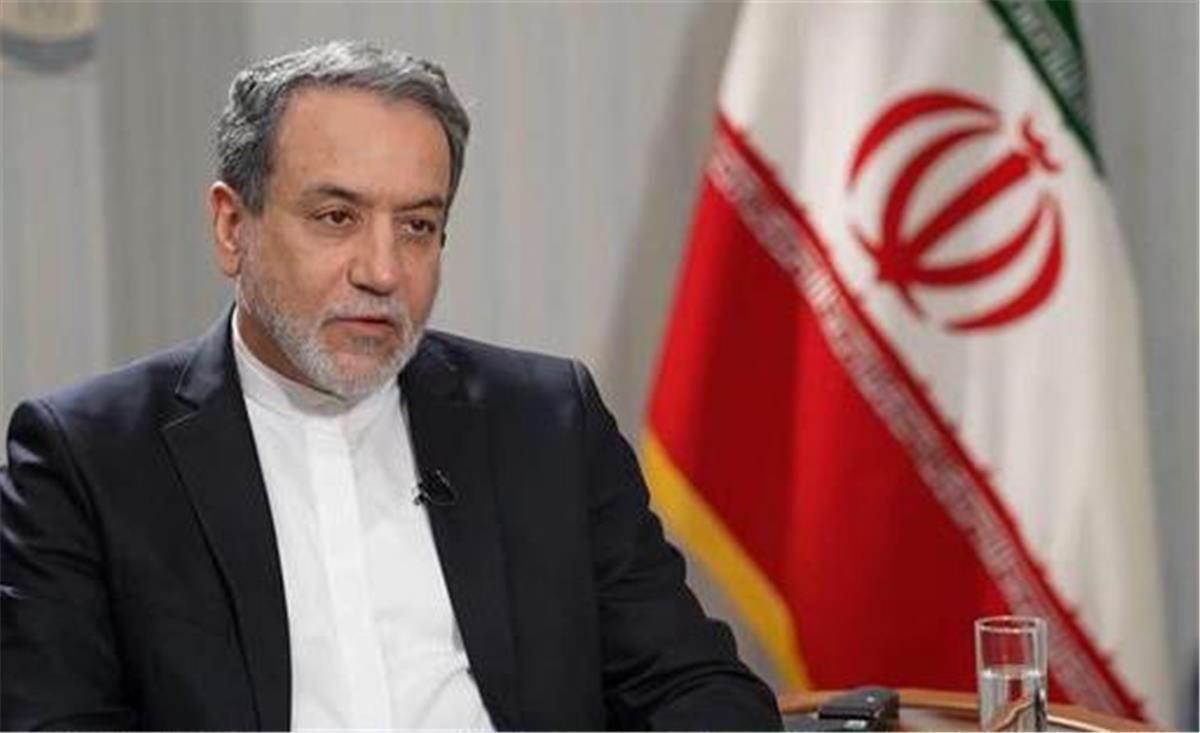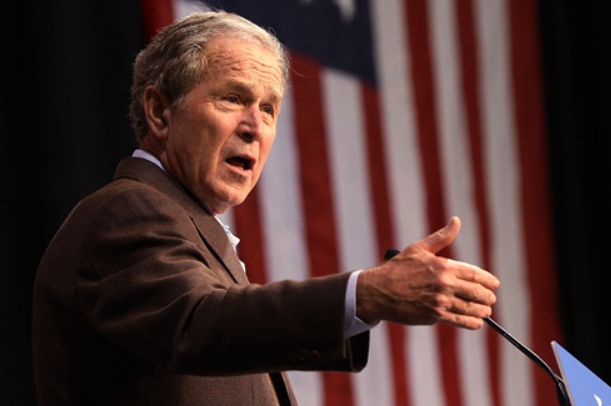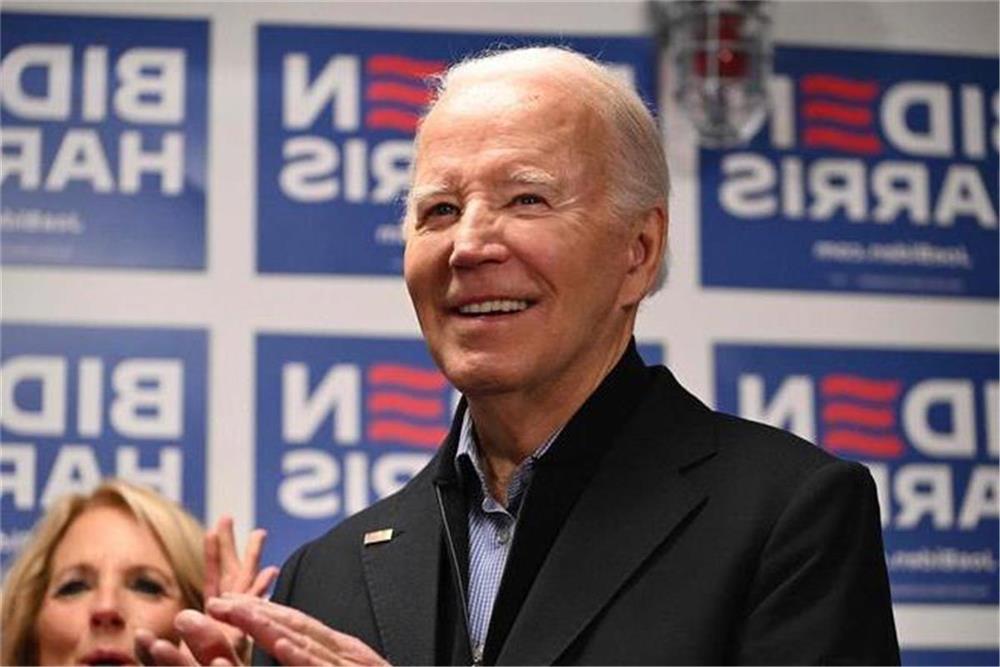Iranian foreign minister talks about the drastic changes in Syria again: Iran and Russia provided intelligence months ago

When he arrived in China for his first official trip abroad following his appointment in December, Iran's Foreign Minister Seyyed Abbas Araqchi thanked the Asian giant for mediating in the resumption of diplomatic relations between his country and its Middle East neighbor, the Kingdom of Saudi Arabia.
"Iran and Saudi Arabia have great potentials to be explored. We appreciate the efforts of countries like China, which always act positively and try to do good for the region. We have had good and positive cooperation, and we want to expand our friendly cooperation."
On the resumption of nuclear talks between Iran and world powers, Araqchi says, "Iran is ready, and I hope this time the other side also will be ready. If they are, I am hopeful. If there is political will on all sides, things could go well."
"We [Iranians] cannot be forced. [We cannot] be pushed in a way against our interests. The Iranian nation is made from another material which cannot be crushed in this way. Sanctions may lead to some losses, may put pressure on people, may cause some difficulties for Iranians, but they cannot force Iranians, the Iranian willpower, and the Iranian aspirations to retreat from where they are standing."
Today, CGTN's dialogue guest is Iran's foreign minister, Seyyed Abbas Araqchi. He was in Beijing from December 27 to 28 at the invitation of his Chinese counterpart, Wang Yi. The Middle East is a region of critical global importance, especially when you see turmoil on that side of the world – from the raging Israeli-Palestinian conflict to the recent regime change in Syria. How will the Islamic Republic of Iran address such turbulence and maintain stability? Is the Iran Nuclear Deal – known as the Joint Comprehensive Plan of Action or the JCPOA – set for a long-awaited, much-vaunted resumption of talks in 2025? And how can Iran, a close friend and partner to China, help to advance an international order that is fairer and more just? We will answer all these questions with Iran's top diplomat.
Wang Haoke:Hello Foreign Minister Araqchi. Thank you for being this week's guest on Dialogues at the Top. First of all, congratulations! You are a seasoned diplomat with more than 30 years of experience, and just 12 months ago, there was another change of guard in Tehran. You have been named foreign minister in a time of great tumult in the region. How would you define your job during this difficult period? More importantly, what would your priorities be, Minister, as we approach 2025?
Araqchi:"When I was appointed foreign minister, we saw a chaotic, messy situation in the region. One of my priorities, when I was appointed, was that I should have good relationships with all neighboring countries and countries in the Middle East and also in the region in general – the Gulf.
"Then, we have good and very close relations with some countries, and we want to strengthen our relations – strategic partnerships. This was another priority. The next one was we have very friendly relations with China, for example. So, if you asked me, 'Why is China important?' It was the answer for me that now it was time to expand our relations with China, with a large number of other friends as well outside of this region, because there are different developments."
When President Ebrahim Raisi visited Iran's neighbor and archrival Saudi Arabia earlier this year, he said it was a day that Iranians will remember forever, a day that will go down into history books. It turned out to be Iran's biggest success story of 2023.
Wang Haoke:The relationship between China and Iran has gone through some really difficult and tough times, but it continues to flourish. How would you define the strategic significance of China-Iran relations, and what role can Beijing play in further deepening the friendship? You said earlier on that we do things together, and the world should recognize that. What would be that role, and what are the prospects ahead for China-Iran diplomacy?
Araqchi:"We, Iran, and China, have good neighborly relations, and we've developed them in all areas. Of course, we have our high-level contacts.
"As you said, when the Iranian president, Mr. Ebrahim Raisi, visited China, President Xi Jinping hosted him on three separate occasions – in October last year and also once this year. This is important for the leadership of both countries to be in constant contact. Then also we have good ministerial contact, also vice minsters, also other governmental delegations. All these contacts have been going on, and the most important thing is this: We believe that the comprehensive cooperation program between the two countries covers all possible fields.
"Agricultural, cultural, scientific, technological, investment, security, and youth, educational, and cultural exchange – and the list goes on and on and on. What we agreed during the visit of our president and the president of China was a roadmap and a timetable between all these programs, and some of the work has already been done, and, indeed, in some programs, more work has to be done. In short, I can say that Iran, at its highest level and also its governmental level, has welcomed the Comprehensive Cooperation Program, and we would love to see further good cooperation between the two sides. We, indeed, thank the Chinese side very sincerely."
Wang Haoke:In their encounter at that time, President Xi stressed the need for China and Iran to deepen their "all-weather" friendship. That, indeed, was a reference point to Iran, I believe, because Iran has gone through so much. Your president has said that China remains Iran's most important strategic partner. Minister, you are here, you talked earlier, of a strategic partnership, and the relationship that we have between China and Iran.
How would you want to build on such a strategic relationship and make it stronger in the years ahead?
Araqchi: "I think the description of Iran-China relations as a comprehensive, strategic partnership is very nice. Of course, after Iran, after President Raisi, visited China earlier this year, the comprehensive strategic partnership was elevated to be "all-weather." The Iranian foreign ministry follows those orders very strictly.
So what does it mean?
"It does not only mean relations between the two governments, but there are so many other aspects – bilateral relations at different levels – and we also cooperate together on issues concerning the region and also international matters. So, in other words, we have bilateral cooperation, and we do also have good consultation of the region, of regional issues and even of issues beyond the region."
The most talked-about and recent geopolitical development on earth right now is the sudden, sweeping collapse of Syrian President Bashar al-Assad. There are many questions to be asked – who was behind this regime change; was Iran caught completely off-guard? There are so many questions that many around the world are trying to find out.
Wang Haoke :Minister, before you left Tehran, you did make a visit to Syria before things fell apart. So my first question to you on this issue: Did you have an inkling at this meeting of the impending crisis that we are witnessing now on Syria? I also understand that in 2018, the Syrian government made a similar visit, and at that time, your officials were not aware of any plans to topple Assad.
So is Iran also not aware of a plan of any kind, any conspiracy to overthrow the Syrian leader?
Araqchi:"We already knew some months before what was going to happen in Syria, because the information about the opposition – so-called opposition – being organized and trained – and also equipped – and also supported. We, Iran, knew about this many months before. We even gave this information, some months before, to the Syrian government.
"We even got the impression that the Syrian government knew and understood and was taking action regarding this opposition. It was also said later that Russia also informed the Syrian leadership about possible opposition groups in the future and about what will happen. So, yes, in that sense, we, Iran, understood some things. But how quickly things developed, how quick this opposition was able to take over, this was a surprise to all of us, and also – I believe – to Bashar al-Assad."
Wang Haoke:In recent days, Iran's response to this dramatic development has been, obviously, very cautious and restrained. You have even described the situation as very complicated. Iran and Syria, of course, are strategic partners, and many are wondering if President Assad's exit is temporary. So my follow-up, Minister: What would have been Syria's plan B at that time, a year, two, even three years ago? And what is Iran's response to the current situation in Syria?
Araqchi: "One thing that I have to say is that the situation in Syria is a problem and a crisis for the country of Syria. Of course, there are other parties involved in it – neighboring countries like Israel, and the United States and some other countries. It is not just an Iranian concern.
"But, yes, Iran does have good and friendly relations with Syria. We were working together to solve the problems of Syria – reconstruction, the return of refugees, and also helping the government of Syria to come back to Syria, to rebuild things. What is happening now, in the past 12 days, has changed the situation.
"Now we see a provisional or transitional government is formed in Damascus, and we are waiting – all countries and other parties – that this temporary or transitional government declares its stance – its stance towards countries – towards regional countries, and other countries, in particular. That would be important for everybody.
"Now the second thing is that we are waiting to see if this new government will start cooperating with other neighboring – friendly – countries and other countries. So, yes, we want to see, and I hope Iran-Syria relations will develop in some sort of way to serve and be useful for both sides.
"Also, of course, I have to say that what is happening in Syria is of vital interest to Iran – vital interest, yes. So we are following what happens in Syria very carefully. We would like to know what will happen – what is their policy, what is their plan – for the situation of Syria?"
Araqchi said they were informed of an opposition plan being prepared in the region to change the government in Syria
Wang Haoke:Minister, you also said that this transitional government, this provisional government in Damascus, does not represent the Syrian people at all. They are being supported by external forces, you said. So does Iran plan to maintain diplomatic contact with Syria's new government or not?
Araqchi: "[In regard to Syria's] national unity, territorial integrity, stability – this is a must. It has to be. And it must be. Of course, if this happens, it must happen by and for and of Syrians.
"They will decide what would happen. They would decide who would run the country in the future. They would decide who is in the government, and all that. We will help them of course.
"But the first priority should be that the unity of Syria, national unity, territorial integrity, must be kept together, must be intact. There should not be safe heavens and sanctuaries for terrorist groups and terrorist organizations. This must not happen. And also Syria should not be a threat to neighboring countries, [Israel], Lebanon, Iraq, and also Jordan – Jordan is a neighbor. So these countries are our friends. And, indeed, Syria, as soon as stability comes to Syria, it will become also our friend. So, yes, these were the main things of [the] situation of Syria."
Iran is also watching a nearby country, Lebanon, and what is going on in the country that it helps govern. Earlier this year, its defense minister warned that the country and region is at the point of a full-blown disaster. Since the new Israeli-Palestinian conflict began, Hezbollah – Iran's proxy group in Lebanon – has said it is ready to retaliate if its patron loses another war.
Araqchi:"It has been the case since the [Islamic] Revolution, 45 years ago, that Lebanon – some of the leadership of Lebanon – they have some sort of close or friendly relations, very close relations, with Iran, with the leadership of Iran. So, yes, it is so. In recent years, especially during this – I cannot call it an 'aggression from Israel against Palestine' – but Israel is doing what it does all the time, so we have good relations with Lebanon, with Lebanese, in different areas. We help them in reconstruction. We have good economic, trade relations with Lebanon, with the Lebanese people.
"But also, of course, in the war that happened in Lebanon and Israel and with what happened with resistance [Hezbollah] in Lebanon – we help in the war with Israel, so they have a lot of good relations with the Resistance, with Hezbollah. But I also have to say it is not an easy situation or relations in Lebanon. We respect the independence, sovereignty, unity of Syria – excuse me – of Lebanon, and indeed Lebanon is an important and strategic and good country – an important good Muslim country, indeed."
Israel, of course, now feels much more emboldened to carry its regional aggression, its strategic interests into a neighboring country. And it also seems that there are some other parties – some other global powers – that would like to see a realignment of alliances in the region. So, Minister, what is Iran's assessment of the new security situation in Lebanon, especially when Iran and Israel are so close?
It was Hezbollah's leader who said earlier: The biggest threat to world peace today is US-made F-35 fighter jets and US-built weapons that are in the hands of Israel. So, Minister, when Iran speaks of peace and stability, where does Israel and America fit into Iran's vision? And how far are Israel and the US from this vision of peace?
Araqchi: So I think, first the aggression by Israel against Palestine [this new conflict] started – well, I don't call it an 'aggression' – but, yes, an aggression against Palestine. And what the leader of Hezbollah in Lebanon, Sayyed Hassan Nasrallah, said was if you [Israel] do harm in Gaza, we will do harm in Israel – in Tel Aviv, in Israel.
"Of course, what happened now, in October this year was Israel started its aggression against Gaza – more than 200,000 rockets, ballistic and artillery shells landed in Palestine and in Gaza. They also used forbidden weapons like [cluster bombs] – very bad weapons for the war. So what happened later was that indeed what the leader of Hezbollah said – they used this opportunity to retaliate against Israel from Lebanon using some ballistic missiles – and they hit Tel Aviv, and many parts of Israel were attacked.
"It was not a long period in comparison to the war Israel waged against Palestine. Yes, the situation was like this. And indeed, Hezbollah – the resistance in Lebanon – did this successfully. And I think they learned from what happened in Syria [recent events]. Indeed, we hope for the future of Lebanon – for its sovereignty, independence, unity.
Wang Haoke:The biggest geopolitical question that is confronting the Islamic Republic of Iran – of course, the Palestinian question. It has been at the center of everything that you have done as a country. So what would be Iran's policy on Palestine? You and many others in your leadership, I believe, see the situation in Palestine as an existential threat for Israel. Do you believe and think that this new war has changed the Middle East forever, that the Middle East will never be the same again?
And do you really still believe, despite this latest defeat on the battlefield, the defeat for Hamas or the defeat, maybe, for many people out there who are calling for the end of Israel as a Jewish state… Do you still believe, Minister, that Israel will cease to exist?
Araqchi: "Of course, this was our stance – the Islamic Republic of Iran, and many Muslim countries. So that is the point. Of course, Palestine – the Palestinian problem is the number one problem – first among all the problems – in the region.
"It is not just – let us say the Middle East region. It is an international problem that must be resolved. Many leaders, not just Muslim countries and Arab League – but many – I would go as far as saying most – leaders in the world say the Palestinian problem should be resolved very soon. And if we are to find a peaceful solution to Palestine – peaceful solution – what we expect is Israel to stop, must stop – must stop all the aggression against Palestinian people."
Wang Haoke:So I want to go back to an earlier question. Palestine is obviously the most important thing on Earth. When it comes to this latest war that has cost so much Palestinian lives, do you now believe or think – after seeing what Hamas has achieved on its own with no international support – that Palestine is closer than ever to the Islamic Republic's vision of independence and freedom, that Palestine will be free?
Araqchi:
"I think it should not be – how would I say? – so pessimistic or so negative, or so pessimism – let me put it that way – about whether there will be two-state solutions – two-state solution with Palestine – with an independent state of Palestine and independent Israel. I believe this solution – or a solution close to it should be found very soon for the sake of people in the Middle East, for the sake of Palestinians, who lost so far – in this war [alone] – 40,000 martyrs.
"So it should be – as much as possible – resolved peacefully. What would be this peaceful solution? Well, first, what Israel did was – in this aggression – they entered Gaza, they entered Palestine to destroy, in the words of their prime minister – to destroy Hamas and its bases – and not only these things, to uproot all the infrastructure of Hamas.
"The destruction happened; of course, Gaza was destroyed. Israel entered, but, indeed, what was Israel's solution for Hamas and its bases and the infrastructure? Did they uproot it? No. It was [Israeli PM Binyamin] Netanyahu himself – he said, 'We lost many good soldiers for nothing in this war.' I mean it was the Israeli prime minister himself said that they lost so much [in the new war with Gaza]. Of course, indeed, it is not a victory for Israel, it is definitely not what they have been trying to do against resistance, against Palestine, against Hamas and Palestinians.
"It is definitely an important victory for Hamas for Palestine for the whole of the Islamic world, for the whole of the Muslim and other countries who want to have an independent state of Palestine to exist. Indeed, there are many countries and leaders say this. So, yes, Israel, in one hand, it was a defeat for Israel in their military operations.
"And on the other hand, indeed, there was – Hamas – a great victory – a victory and a huge victory. Now Hamas – the leader of Hamas – Sheikh Hamas – he was in Lebanon earlier when the war started. Now he is somewhere in Jerusalem. Indeed, this is the big news. The Palestinian leaders – they have this will, their resistance and their will – to stand and to keep on fighting. They would not back down."
Wang Haoke:There has been much talk, I am sure you are aware, from many sides, including from some members of America's Congress, calling for an airstrike, a US airstrike of the Iranian city of Isfahan, where there is an Iranian nuclear plant – and it's called Natanz. Many are saying it should be the next
 Famous Persons
Famous Persons English
English
 Leo
Leo Facebook
Facebook Twitter
Twitter Pinterest
Pinterest Linkin
Linkin Email
Email Copy Link
Copy Link










